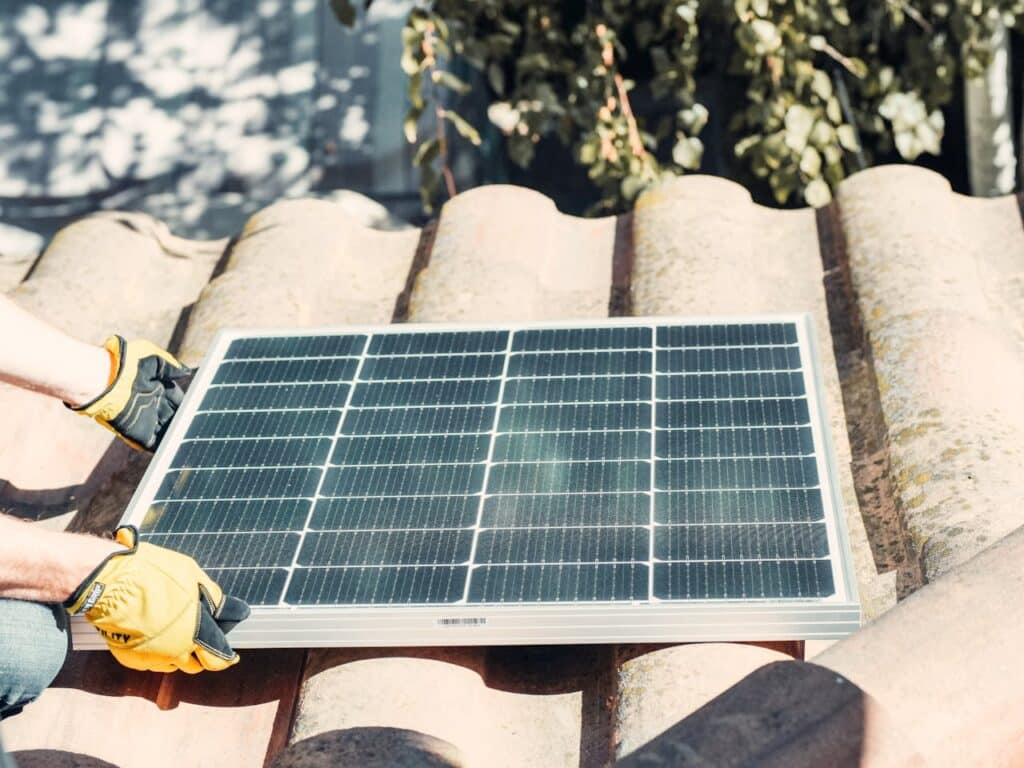WEEE Compliance
The Waste Electrical and Electronic Equipment (WEEE) Directive is a crucial piece of legislation aimed at reducing the environmental impact of electronic waste, including solar panels.
This regulation requires the treatment, recovery, and recycling of waste electrical and electronic equipment (EEE) to promote sustainable waste management practices. Understanding WEEE compliance is essential for businesses and consumers alike to ensure they are adhering to the necessary regulations in the UK.
This article explores what WEEE compliance entails for solar panels, its importance, and the specific requirements for their disposal and recycling.
Understanding WEEE Compliance for Solar Panels
What Is WEEE?
WEEE stands for Waste Electrical and Electronic Equipment. The WEEE Directive is an EU legislation that has been transposed into UK law, regulating the disposal and recycling of electronic equipment (EEE) to minimise the environmental impact of e-waste.
It mandates the collection, treatment, recycling, and environmentally sound disposal of electrical and electronic products, including solar panels.
WEEE Compliance Scheme
A WEEE compliance scheme in the UK helps businesses meet their obligations under the WEEE Directive. Companies that manufacture, sell, distribute, or import solar panels must register with a compliance scheme. These schemes ensure that solar panels are disposed of correctly and recycled where possible.
Categories of Electrical and Electronic Equipment
Solar Panels
Solar panels, as part of electrical and electronic equipment, fall under the WEEE Directive. The legislation ensures that when solar panels reach the end of their lifecycle, they are collected, treated, and recycled in an environmentally responsible manner.
Related Categories
Solar panels are associated with several other categories of electrical and electronic equipment that also fall under WEEE regulations:
- Large Household Appliances: Items such as washing machines and refrigerators often use solar power systems.
- Small Household Appliances: Devices like solar-powered lights and chargers.
- IT and Telecommunication Equipment: Solar-powered communication devices and systems.
- Consumer Equipment: Solar-powered gadgets and tools.
The WEEE Bin Symbol
Crossed Out Wheelie Bin
The crossed-out wheelie bin symbol is a key indicator of WEEE compliance. It signifies that solar panels, like other electronic equipment, should not be disposed of with regular household waste but must be taken to a designated collection point for proper recycling. This symbol is found on all products covered by the WEEE Directive, reminding consumers to dispose of their solar panels responsibly.
How WEEE Regulates Solar Panel Waste Management
Treatment, Recovery, and Recycling
WEEE compliance ensures that solar panel waste undergoes proper treatment, recovery, and recycling processes. These processes are designed to recover valuable materials, reduce environmental impact, and ensure that hazardous substances are managed safely.
For solar panels, this includes the recovery of valuable metals and the safe disposal of hazardous materials like cadmium and lead.
Compliance Across EU Members and the UK
The WEEE Directive applies to all EU members and has been adopted into UK legislation, standardising the approach to electronic waste management across Europe and the UK. Each member state, including the UK, implements the directive within its own legal framework, ensuring that all solar panels are disposed of in an environmentally friendly manner.
Ensuring Compliance For Businesses
Businesses involved in the production, distribution, or sale of solar panels must register with a WEEE compliance scheme and adhere to the regulations. This includes correctly labelling products with the bin symbol and ensuring proper disposal practices are followed. Solar panel installers also need to be aware of these regulations to guide their clients appropriately.
Ensuring Compliance For Consumers
Consumers also play a crucial role in WEEE compliance. By recognising the crossed-out wheelie bin symbol and taking their solar panels to designated collection points, they contribute to the effective recycling and treatment of solar panel waste.
The Importance of WEEE Compliance for Solar Panels
Sustainable Waste Management
WEEE compliance is essential for managing the growing problem of electronic waste, including solar panels.
By adhering to the WEEE Directive, businesses and consumers can help ensure that solar panels are recycled and disposed of responsibly. This not only reduces the environmental impact but also recovers valuable materials for reuse.
Environmental Benefits
Proper disposal and recycling of solar panels help reduce landfill waste, prevent pollution, and conserve natural resources. Recycling solar panels ensures that materials like silicon, glass, and metals are recovered and reused, reducing the need for new raw materials.
Legal and Ethical Responsibility
Adhering to WEEE regulations is not only a legal requirement but also an ethical responsibility. Ensuring that solar panels are disposed of correctly supports global efforts to reduce electronic waste and promotes a sustainable future.
At PV Recycling, we support the sustainable use of solar energy by providing collection and recycling services for bulk loads of solar panel waste from businesses across the UK. Contact us to learn more about how we can assist you in managing your solar panel lifecycle responsibly and efficiently.

